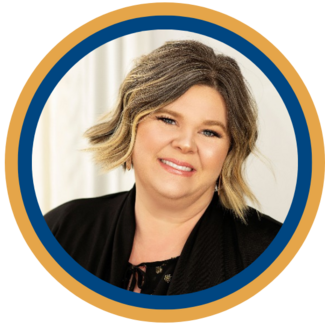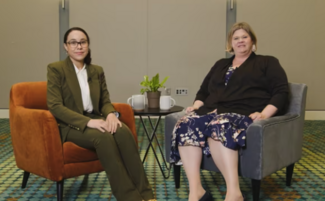Breaking Down Treatment Barriers for Girls and Women With ADHD
In October of 2024, the US Centers for Disease Control and Prevention (CDC) reported that while nearly half of men with attention-deficit/hyperactivity disorder (ADHD) receive a diagnosis before the age of 12, just over 60% of women are not diagnosed until adulthood. As clinical understanding of ADHD continues to evolve, why does this gender disparity persist, and how can clinicians best support female patients in receiving an accurate diagnosis and appropriate treatment?
In this video, Psych Congress Co-Chair and President of the American Professional Society of ADHD and Related Disorders Greg Mattingly, MD, dives into the factors that prevent girls and women from receiving ADHD diagnoses earlier in life. With a focus on the practical toll that a lack of diagnosis may have on patients, Dr Mattingly outlines the reasons clinicians may miss ADHD in girls, explains how the disorder may manifest differently in women than men, and offers practical advice for providers hoping to help bridge this gap in their clinical practice. He also emphasizes the role that increased awareness may have in educating both clinicians and patients on why these disparities exist and, in turn, open the door for women with the disorder to receive life-changing treatment.
Read the Transcript
Greg Mattingly, MD: This is Greg Mattingly, the President of the American Professional Society of ADHD and Related Disorders and Co-Chair for Psych Congress, coming to you today to talk about raising awareness for individuals with ADHD with a special focus on the role of ADHD in the lives of women.
Psych Congress Network: How does ADHD tend to manifest differently in women and girls, and why are these signs so often missed?
Mattingly: One of the biggest mistakes is that we tend to think about ADHD when it comes to boys and men, but we forget the role of ADHD in the lives of women. For many of us, I know when I was first being trained, I was taught to look for young kids, young boys, that were fidgeting in the classroom. They grew into men that maybe were impulsive, had difficulties at work, couldn't concentrate. What we missed was the other side of that equation, and that's the role of ADHD in women.
We know that ADHD in women looks differently. It presents differently, which is why it can be missed. We know that women and girls with ADHD quite often present with other things going on in their life. They may present with anxiety, with stress, they may present with feeling overwhelmed, they may come in because they can't sleep, or they can't shut their mind off.
We also know that young girls with ADHD don't have the typical fidgetiness, the restlessness, the hyperactivity that boys have, which bring boys into attention. We know that unfortunately, even now, girls get missed 5–10 years longer than a boy or a man with ADHD. So for many of the women I see with ADHD, it's not just ADHD, it's, “How has ADHD affected me now in my life, in my self-esteem, my self-image? How do I view myself when it comes to being a good learner, being able to control my own emotions, feeling overwhelmed and frustrated because I know there's something that isn't quite right?”
PCN: Many women are first diagnosed with ADHD in their 30s or 40s. What are the clinical and emotional consequences of such a late diagnosis?
Mattingly: Women, even now, still get picked up 5–10 years later in life, which means they've lived with ADHD 5–10 years longer than a young man who maybe gets his first diagnosis. So for women with ADHD, quite often they've dealt with academic frustrations. Maybe they've dealt with relationship frustrations. Maybe they've gotten overwhelmed and now they've developed secondary emotional frustrations, difficulties with anxiety, sleep, or difficulties modulating frustration.
A lot of the women that come in to see me come in because they've hit a ceiling. [They say,] “I've been able to cope up until now. I've known there's something that's not quite right. I was disorganized. I was forgetful. Maybe I was difficulty with time management. Maybe I talked over things or had a hard time with frustration modulation. But now that I'm a mom, now that I'm living independently, now that I've got my own job, now that I'm trying to pay my own bills, I can't keep the balls in the air anymore.”
A big study that came out by the CDC showed that even now, 60% of women do not get a diagnosis of ADHD until they're an adult, as compared to men, where 45%, almost half, get a diagnosis before age 12. So women live with ADHD longer. It affects them in more areas of their life because they have not gotten brought to attention, and by the time they come into attention, ADHD has metastasized into other parts of a woman's life.
PCN: Why do gender disparities in ADHD diagnosis persist, and how can clinicians close this gap in practice?
Mattingly: One of the reasons that gender disparities still tend to exist—it's a simple thing, but it's something we have to keep in mind—is hormones matter. Women throughout their lives, as they have fluctuations in estrogen, see dramatic shifts in symptoms. Young women before puberty, a lot of them say, "Listen, I had ADHD, but I got along okay. And then all of a sudden, as I started having hormone fluctuations, those hormones didn’t just affect my mood. They affect my ability to concentrate, impulsivity, and frustration tolerance.” And here's a place where it gets to be an additive effect. Hormone fluctuations plus stress have an additive effect on an individual living with ADHD.
We see that young woman that maybe got along during her childhood years, ADHD was there but is in the background. During adolescence it started coming up and in certain parts of the month it seemed to be worse than others. Is this moodiness? Is this frustration? Really, it's worsening of my ADHD symptoms throughout the month. Now I've got an increased stress load. I'm trying to manage my own life. I'm maybe living away from home. I've got my first job, maybe I'm in relationships, maybe I'm trying to raise my family. And now ADHD is at the forefront. I'm overwhelmed, I can't keep the balls in the air.
One of the biggest mistakes clinicians make is they get the wrong diagnosis first. They treat a person for anxiety, for mood, for mood liability, for irritability, for insomnia, without looking deeper and saying, "Why do you have those symptoms?” Well, I have those symptoms because ever since I was a kid, I've had symptoms of ADHD, but they never got brought to attention.
PCN: How is the growing public discourse, including awareness campaigns and advocacy efforts, helping more women recognize ADHD in themselves and seek clinical support?
Mattingly: The good news is more women are coming in for treatment. The fantastic news is a number of celebrities have stepped up and said, "Listen, I want to use my life as an example for other women, other women that don't have to struggle with untreated ADHD during their adolescent years, during their young adult years." More recently we've had Olympic athletes come out and say, "Listen, I have ADHD. I was top of the podium. I had a gold medal, but things weren't quite right. I couldn't modulate stress. I couldn't modulate frustration. I realized I had ADHD.”
One of the campaigns that I'm especially proud to see these days is one with Busy Philipps. Busy Philipps has been a very successful actress. She's been in a number of movies and TV series. On the surface, she's this shiny role model of somebody who's been successful. Underneath it all, she was a woman who had untreated ADHD. And she'll tell you the ADHD affected her self-esteem. She felt like there was something missing. It affected her frustration tolerance. She was getting upset and frustrated and emotional, being treated for anxiety and all types of things before she got that diagnosis of ADHD.
So, Busy Philipps has started a public awareness campaign “Ms. Represented.” I think you can find out more about that, about qelbree.com/msrepresented, where Busy shares her role model, what it was like to be misdiagnosed, what it was like to live with ADHD as a woman on the outside looked like everything was successful, but on the inside, she knew there was something missing.
I think having celebrities come out to break down stigma, to break down barriers, to increase education [is important]. ADHD is not just the person who's failing in life—they can be struggling with symptoms and symptoms causing impairment.
The good news is we're developing more treatments that are targeted for adults with ADHD, and in particular the role of ADHD when it comes to women. So everyone out there, if you have a chance, go to qelbree.com/msrepresented. Listen to Busy’s story, her life story, as she advocates for the role of treatment for women with ADHD.
Greg Mattingly, MD, is a physician and principal investigator in clinical trials for Midwest Research Group. He is also a founding partner of St. Charles Psychiatric Associates where he treats children, adolescents, and adults. A St. Louis native, he earned his medical degree and received a Fulbright scholarship while attending Washington University. Dr Mattingly is board certified in adult and adolescent psychiatry and is a Diplomat of the National Board of Medical Examiners. He is an Associate Clinical Professor at Washington University where he teaches psychopharmacology courses for the 3rd year medical students. Dr Mattingly has been a principal investigator in over 400 clinical trials focusing on ADHD, anxiety disorders, major depression, bipolar disorder and schizophrenia.
© 2025 HMP Global. All Rights Reserved.
Any views and opinions expressed above are those of the author(s) and do not necessarily reflect the views, policy, or position of the Psych Congress Network or HMP Global, their employees, and affiliates.


















